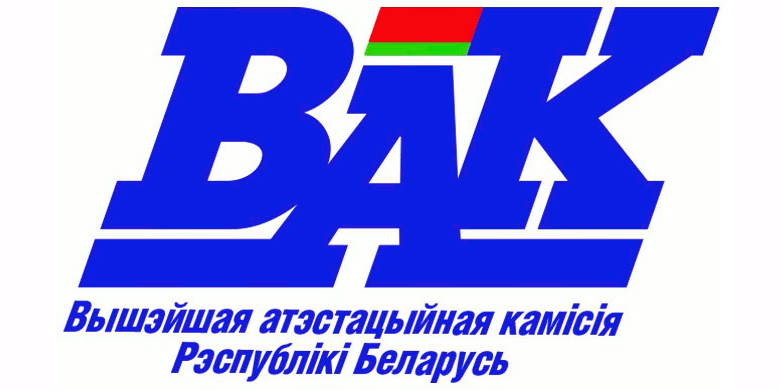ПОНЯТИЕ О ЯЗЫКЕ-ПОСРЕДНИКЕ И ЕГО ЗНАЧЕНИИ В ПРЕПОДАВАНИИ РУССКОГО ЯЗЫКА КАК ИНОСТРАННОГО
Ключевые слова:
язык-посредник, иностранный язык, русский язык как иностранный, сопоставление, аспекты языка, интерференция, национально-ориентированная методика, дистанционное обучениеАннотация
Данная статья посвящена вопросам преподавания иностранных языков, в частности русского языка как иностранного. Одним из современных направлений в методике преподавания русского языка иностранцам является национально-ориентированная методика. Сущность данной методики состоит в использовании в процессе обучения родного языка учащихся либо языка-посредника. В представленной статье автор, опираясь на мнение отечественных и зарубежных исследователей, раскрывает сущность понятия «язык-посредник», а также показывает его важность в процессе преподавания русского языка как иностранного, демонстрируя основные ситуации, в которых его использование является целесообразным. Автор объясняет выбор английского языка в качестве языка-посредника, опираясь на факты, подтверждающие его статус мирового языка. Вопрос об использовании на занятиях по РКИ языка-посредника давно волнует как отечественных, так и зарубежных методистов. По мнению автора статьи, то, насколько часто и в каких ситуациях следует прибегать к помощи родного языка учащихся или языка-посредника, зависит от многих факторов, которые необходимо учитывать при работе с иностранными студентами. Так, особое внимание следует уделить этапу обучения, форме обучения, контингенту учащихся, содержанию обучения, а также целям обучения. В статье подробно рассматривается, как и в какой степени может использоваться язык-посредник применительно к каждому из вышеперечисленных факторов.
Библиографические ссылки
2. Виноградов, В. А. Язык-посредник / В. А. Виноградов [Электронный ресурс]. – Режим доступа: https://www.booksite.ru/fulltext/1/001/008/128/141.htm – Дата доступа: 20.01.2019.
3. Ерёмина, О. А. Обучение переводу : Практическая методика обучения РКИ / О. А. Ерёмина. – М., 2003. – 134 с.
4. Жеребило, Т. В. Термины и понятия лингвистики: Общее языкознание. Социолингвистика: Словарь-справочник. (956 словарных статей) / Т. В. Жеребило.– Назрань : Пилигрим, 2011. – 280 с.
5. Митрофанова, О. Д. Методика преподавания русского языка как иностранного / О. Д. Митрофанова, В. Г. Костомаров. – М.: Русский язык, 1990. – 267 с.
6. Московкин, Л. В. Русский язык как иностранный и актуальные проблемы его преподавания / Л. В. Московкин // Foreign Language Teaching. – 2012. – № 4 (39). – С. 353-372.
7. Панькин, В. М. Языковые контакты: краткий словарь / В. М. Панькин, А. В. Филиппов. – М.: Флинта: Наука, 2011. – 168 с.
8. Почтарь, Е. И. Английский язык в языковой ситуации современного мира / Е.И. Почтарь // Вестник Приднестровского университета. Серия: Гуманитарные науки. № 1 (49), 2015 – Т.: «Издательство Приднестровского университета», 2015. – 173 с.
9. Сурыгин, А. И. Основы теории обучения на неродном для учащихся языке / А. И. Сурыгин. – СПб.: Издательство «Златоуст», 2000. – 233 с.
10. Типовая учебная программа для иностранных слушателей подготовительных факультетов и отделений высших учебных заведений, утвержденная Министерством образования Республики Беларусь (27 апреля 2006 г. Регистрационный № ТД – Д.026/тип.).
11. Фильцова, М. С. Использование языка-посредника в обучении русскому языку студентов English Media [Текст] / М. С. Фильцова // Образование: прошлое, настоящее и будущее: материалы II Междунар. науч. конф. (г. Краснодар, февраль 2017 г.). – Краснодар: Новация, 2017. – С. 97-99.
12. Lubensky, S.: Russian–English Dictionary of Idioms, New York, Random House. 1995, 1017 pp.
References
1. Azimov E.G., Shchukin A.N. Novyy slovar' metodicheskikh terminov i ponyatiy (teoriya i praktika obucheniya yazykam) [A new dictionary of methodological terms and concepts (theory and practice of language teaching)]. Moscow : IKAR, 2009, 448 p. (In Russian)
2. Vinogradov V.A. Yazyk-posrednik [Intermediary Language]. [Electronic resource]. – Mode of access: https://www.booksite.ru/fulltext/1/001/008/128/141.htm – (accessed: 20.03.2019). (In Russian)
3. Yeromina O.A. Obucheniye perevodu: Prakticheskaya metodika obucheniya [Translation training: Practical methods of teaching RFL]. Moscow, 2003, 34 p. (In Russian)
4. Zherebilo T.V. Terminy i ponyatiya lingvistiki: Obshcheye yazykoznaniye. Sotsiolingvistika: Slovar'-spravochnik (956 slovarnykh statey) [Terms and concepts of linguistics: General linguistics. Sociolinguistics: Dictionary-Directory. (956 entries)]. Nazran': Piligrim, 2011, 280 p. (In Russian)
5. Mitrofanova O.D., Kostomarov V.G. Metodika prepodavaniya russkogo yazyka kak inostrannogo [Methods of teaching Russian as a foreign language]. Moscow: Russkiy yazyk, 1990, 267 p. (In Russian)
6. Moskovkin L.V. Russkiy yazyk kak inostrannyy i aktual'nyye problemy yego prepodavaniya [Russian as a foreign language and current problems of its teaching] : Foreign Language Teaching. 2012, no 4 (39), pp. 353-372. (In Russian)
7. Pan'kin V.M., Filippov A.V. Yazykovyye kontakty: kratkiy slovar' [Language contacts: short dictionary]. Moscow : Flinta: Nauka, 2011, 168 p. (In Russian)
8. Pochtar' Ye.I. Angliyskiy yazyk v yazykovoy situatsii sovremennogo mira [English in the language situation of the modern world]. Vestnik Pridnestrovskogo universiteta [Bulletin of Pridnestrovian State University. Series: Humanities], no 1 (49), 2015. T.: «Izdatel'stvo Pridnestrovskogo universiteta», 2015, 173 p. (In Russian)
9. Surygin A.I. Osnovy teorii obucheniya na nerodnom dlya uchashchikhsya yazyke [Fundamentals of the theory of learning in a nonnative language for students]. SPb.: Izdatel'stvo «Zlatoust», 2000, 233 p. (In Russian)
10. Fil'tsova M. S. Ispol'zovaniye yazykaposrednika v obuchenii russkomu yazyku studentov English Media [Tekst] [The use of an intermediary language in teaching Russian to students of English Media [Text]]. Obrazovaniye: proshloye, nastoyashcheye i budushcheye: materialy II Mezhdunar. nauch. konf. (g. Krasnodar, fevral' 2017 g.) [Education: Past, Present and Future: Proceedings of the II Intern. scientific conf. (Krasnodar, February 2017)]. Krasnodar: Novatsiya, 2017, pp. 97-99. (In Russian)
11. Lubensky S.: Russian–English Dictionary of Idioms, New York, Random House. 1995, 1017 p. (In English)













